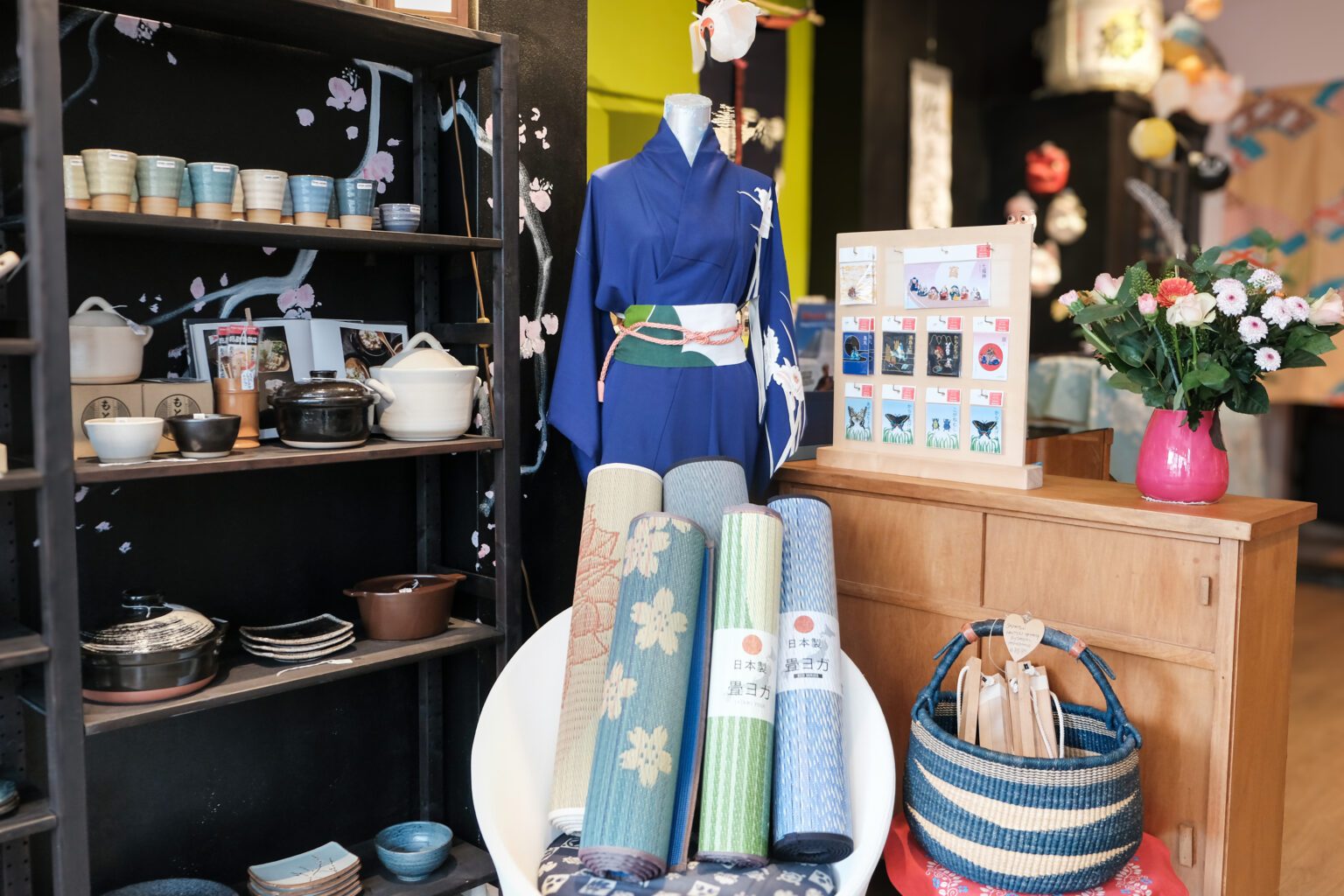
Aan de Pottebakkersrijge woonden vroeger pottenbakkers en nu verkoopt Batsu er Japanse keramiek en porselein en nog veel meer ‘Made in Japan’.
Batsu betekent ‘foutje’ en dat past volgens eigenaresse Sachiko perfect bij de Japanse esthetiek die je met een knipoog moet opvatten. ‘Alles is al zo tot in de perfectie gemaakt in Japan, dat een foutje eigenlijk onvermijdelijk is.’
Batsu is een winkeltje zoals je ze veel in Tokyo ziet. Knus en laagdrempelig met allerlei moois uitgestald, voor jezelf of om weg te geven.
Japanners zijn erg visueel ingesteld. Dat zie je aan de manier waarop ze zich kleden, hun huizen inrichten en ook hoe ze hun maaltijd gebruiken of een kopje thee drinken. Waar de praktisch ingestelde Nederlander vaak hetzelfde servies gebruikt (studentenhuizen uitgezonderd), kiest de Japanner met zorg de juiste items passend bij gerecht, seizoen of sfeer. Eten doe je namelijk allereerst met je ogen!
Met de collectie ambachtelijke keramiek, gietijzeren theepotten, kommen en theekopjes, zoals die van Asemi Hasami waar de koffie ook prima in smaakt, kun je alvast goede sier maken.
Op zoek naar meer Japanse inspiratie in Groningen? Bekijk onze gids.
In the past, potters lived on the Pottebakkersrijge and now Batsu sells Japanese ceramics and porcelain and much more “Made in Japan”.
Batsu means “mistake” and, according to owner Sachiko, that fits perfectly with the Japanese aesthetic that should be interpreted with a wink. “Everything has already been made to perfection in Japan so that a mistake is inevitable.”
Batsu is a shop like you see a lot in Tokyo. Cozy and accessible with all kinds of beautiful things on display, for yourself or to give away. Japanese are very visual. You can see that in the way they dress, furnish their homes and also how they use their meal or drink a cup of tea. Where the practical Dutch person often uses the same tableware (with the exception of student houses), the Japanese carefully chooses the right items to suit the dish, season or atmosphere. You eat with your eyes first!
With the collection of traditional ceramics, cast iron teapots, bowls and tea cups, such as those from Asemi Hasami, where the coffee also tastes great, you can already make a good impression.
Looking for more Japanese inspiration in Groningen? Check our guide.
EST.
21 maart 2007
EIGENAAR
Sachiko Graft
WHAT’S IN STORE
Collectie Japanse boeken, Arita porselein, Asemi Hasami en Hakusan kopjes, furoshiki’s, yukata’s, kami fusen, kokeshi’s, Otsuka thee, sake
LABELS
Zero Japan theepotjes en mokken, Wazuqu gietijzeren theepotten en mokjes, 4th Market keramiek en kookgerei, Vibram furoshiki shoes, T-Lab: Pole Pole houten diertjes.
ACTIVITEITEN
Batsu organiseert regelmatig lezingen, workshops & demonstraties, houd Facebook in de gaten voor info.
NOTEWHORTHY
– rolstoeltoegankelijk
Oogst is een stadgids voor alle grote en mooie, kleine en verstopte, bruisende favoriete plekken in Groningen. Van sprankelende nieuwe cafés tot stoffige kringloopwinkels, we hebben alles voor je verzameld. Hulp nodig bij het vinden van een geweldig restaurant? Een lokale bakker? Een plek voor een vegan lunch? Je bent hier op de juiste plek. Oogst is als een onafhankelijk platform opgezet om je de echt Groningse ervaring te laten ontdekken. En dat doen we door te schrijven over wat volgens ons de beste plekken zijn om te bezoeken. Naast onze selectie van lokale en onderscheidende winkels en horeca, deelt Oogst retail en gastronomie nieuws, verhalen van locals en inspiratie.
Oogst is a city guide to all the big and beautiful, small and hidden, bustling favorite places in Groningen. From sparkling new cafes to dusty thrift stores, we’ve collected everything for you. Need help finding a great restaurant? A local bakery? A place for a vegan lunch? You have come to the right place. Oogst is an independent online platform and was set up to discover the real Groningen experience by giving access to what we believe are the best places to eat, drink, shop and visit. In addition to our selection of local and distinctive shops and restaurants, Oogst shares stories and inspiration from locals and news about retail, gastronomy and other “big city things” that are worth checking out.